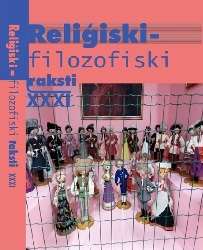Scientific Atheism in Soviet Latvia as a Strategic Element of Khrushchev’s Anti-Religious Campaigns
Scientific Atheism in Soviet Latvia as a Strategic Element of Khrushchev’s Anti-Religious Campaigns
Author(s): Valdis TēraudkalnsSubject(s): Christian Theology and Religion, Religion and science , Politics and religion, Post-War period (1950 - 1989), History of Communism
Published by: Latvijas Universitātes Filozofijas un socioloģijas institūts
Keywords: Khrushchev; atheism; church; Christianity; sociology;
Summary/Abstract: The aim of this article is to analyse the changes in scientific atheism during Nikita Khrushchev’s anti-religious campaign (1958–1964). The study uses materials found in archives and publications of the given period. Formally, this campaign started when the 21st Congress of the Communist Party brought in a new, more radical programme of anti-religious propaganda. Atheism was both a goal (creating atheist society) as well as a strategy (to minimize influence of organized religion). Its main characteristics were: 1) involvement of former clergy; 2) more intensive teaching of atheism in schools and universities (after education system was criticized by party leadership for shortcomings in atheist education); 3) use of sociological research; 4) changing role of the Council for the Affairs of Religious Cults from at least formal mediator in state-church relations to more active involvement in combating religion); 5) use of scientific achievements in atheist education of masses (planetarium as a pedagogical tool, use of space conquering in atheist propaganda). At the same time, Soviet leadership had to admit that all these measures did not eliminate religion. In some cases official reports pointed to resurgence of religion. Scientific atheism served as a form of collaborationism (in the broadest sense of this term) – that is why it was often formal and at the same time, within the limitations, provided a relatively safe space for scholars interested in studying religion.
Journal: Religiski-filozofiski raksti
- Issue Year: XXXI/2021
- Issue No: 3
- Page Range: 203-231
- Page Count: 29
- Language: English

